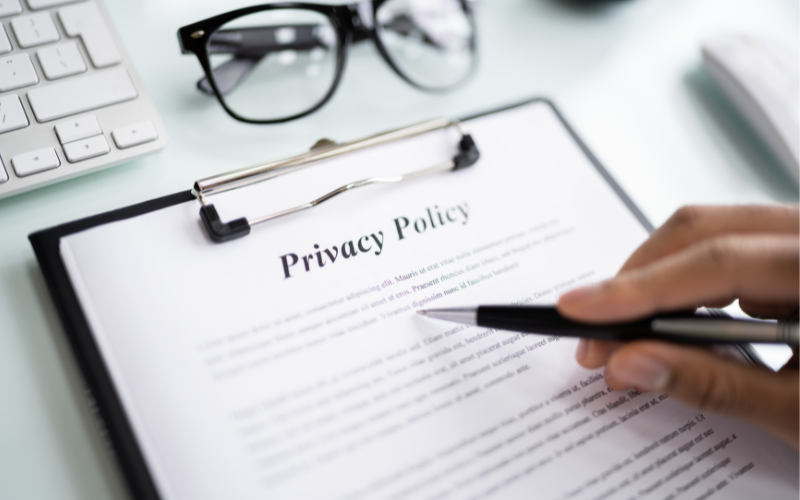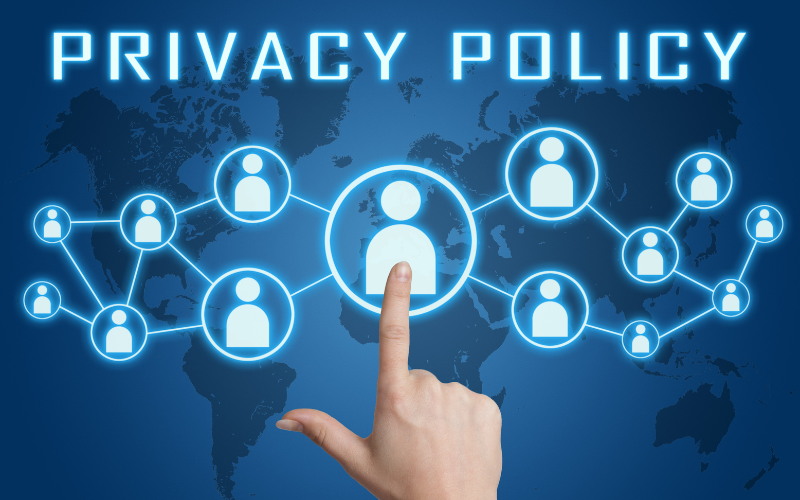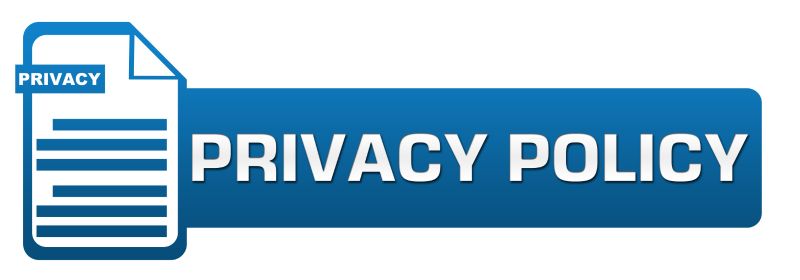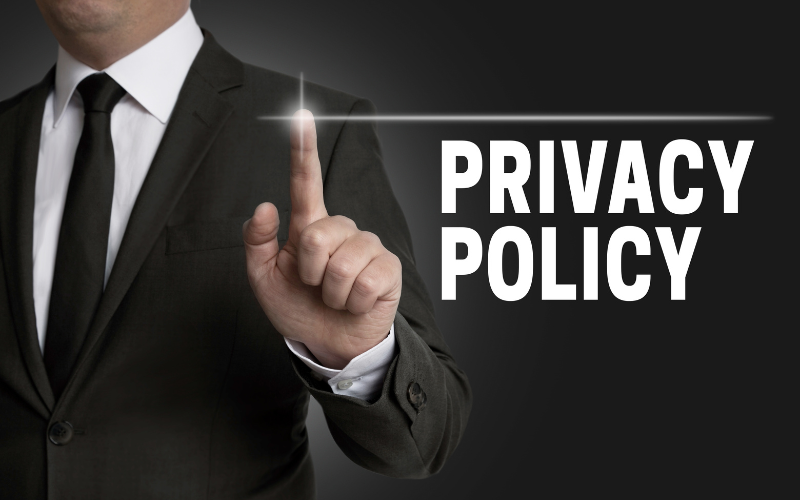Defining Data Collection
Data collection refers to the process of gathering and measuring information on variables of interest, in an organized and systematic manner, which enables researchers to answer questions, test hypotheses, and evaluate outcomes. This can be done through various methods such as surveys, interviews, observations, experiments, and secondary data analysis. The collected data can then be analyzed and used to draw conclusions and make informed decisions. Effective data collection is critical for ensuring the accuracy and reliability of research findings.
Importance of Privacy Policy Guidelines
Privacy policy guidelines are important for protecting the privacy and personal information of individuals. With the increasing use of technology and the internet, it has become easier for companies and organizations to collect and use personal information without consent. Privacy policy guidelines provide a framework for how personal information should be collected, used, and protected. They also inform individuals of their rights and options for controlling their personal information.
Definition of A Privacy Policy

A privacy policy is a statement or document that outlines how an organization collects, uses, and protects personal information. It typically includes information on what types of personal information are collected, how it is collected, how it is used, and who it may be shared with. A privacy policy may also include information on how individuals can access and control their personal information, as well as how the organization will respond to data breaches or other security incidents.
Legal Requirements For A Privacy Policy

A privacy policy is not only a best practice for organizations that collect personal information, but it is also legally required in many jurisdictions. For example, in the European Union, the General Data Protection Regulation (GDPR) mandates that organizations must provide individuals with clear and concise information about how their data is being processed. Similarly, in the United States, various state and federal laws require organizations to have a privacy policy if they collect personal information from consumers.
Risks Associated With Data Collection
There are several risks associated with data collection, especially when it comes to personal information. Here are a few:1. Data breaches: When personal information is collected and stored, it becomes vulnerable to cyber-attacks and data breaches. If a breach occurs, the personal information of individuals can be stolen or compromised.
2. Identity theft: Personal information such as name, address, Social Security number, and credit card details can be used by criminals to steal someone’s identity and commit fraud.
How Privacy Policy Guideline Protects Users

Privacy policy guidelines help protect users by outlining how their personal information will be collected, used, and protected. Here are a few ways privacy policy guidelines can protect users:
1. Transparency: Privacy policy guidelines provide transparency about how personal information is collected, used, and shared. This helps users make informed decisions about whether or not to share their personal information.
2. Consent: Privacy policy guidelines often require companies to obtain users’ consent before collecting or using their personal information.
Elements of a Privacy Policy Guideline for Data Collection
- Types of data collected
- Methods of data collection
- Purpose of data collection
- Use and sharing of data
- Data retention policy
- Security measures
- User rights
- Contact information
Importance of Privacy Policy for Businesses
A privacy policy is crucial for businesses because it helps establish trust with their customers. By being transparent about how they collect, use, and protect personal information, businesses can show that they value their customer’s privacy and are committed to protecting it. This can help build customer loyalty and increase brand reputation. In addition, having a clear and comprehensive privacy policy can also help businesses comply with legal requirements and avoid potential legal issues.
Importance of Privacy Policy for Users

For users, a privacy policy is important because it informs them about how their personal information will be collected, used, and protected by a business. This allows users to make informed decisions about whether or not to share their personal information with a particular business. It also gives users the ability to understand their rights regarding their personal information, such as the right to access, correct, or delete their data.
Common Misconceptions about Privacy Policy Guideline
- I don’t need a privacy policy guideline
- My business is too small for a privacy policy guideline
- “A privacy policy guideline is too complicated”
Consequences of Non-Compliance with Privacy Policy Guideline
- Legal penalties
- Reputational damage
- Loss of business opportunities
Challenges in Implementing Privacy Policy Guidelines
Implementing a privacy policy guideline can be a challenging task for businesses, especially for those who are not familiar with the legal and technical aspects of data privacy. Some of the common challenges that businesses may face while implementing a privacy policy guideline are:
1. Lack of resources: Small businesses may not have the resources to hire a dedicated data privacy officer or legal counsel to draft and implement a privacy policy guideline.
2. Technical complexity: Businesses may not have the technical expertise to implement the necessary security measures.
Conclusion
In conclusion, implementing a privacy policy guideline is crucial for businesses to protect their customers’ personal information and maintain their trust. While there may be challenges such as lack of resources and technical complexity, seeking help from experts or using online resources can help overcome these obstacles. As a writing assistant, I can assist businesses in drafting a clear and concise privacy policy guideline that adheres to legal and ethical standards.
FAQs
Who needs a privacy policy guideline?
Any business that collects, uses, or stores personal information from customers, clients, or website visitors should have a privacy policy guideline in place. This includes but is not limited to e-commerce websites, social media platforms, mobile apps, and healthcare providers.
What are the legal requirements for a privacy policy guideline?
The legal requirements for a privacy policy guideline vary depending on the jurisdiction and industry in which the business operates. However, in general, a privacy policy guideline should include information on what personal information is being collected, how it is being used, who it is being shared with, how it is being protected, and how individuals can access or request the deletion of their personal information.
How can I create a privacy policy guideline?
To create a privacy policy guideline, you can follow these steps:
1. Identify the personal information your business collects: Make a list of all the personal information your business collects, including name, email address, phone number, payment information, etc.
2. Determine how the information is collected: Identify the methods used to collect personal information, such as online forms, cookies, or social media.
3. Explain how the information is used: Describe how the personal information collected is used by your business.
How often should a privacy policy guideline be updated?
A privacy policy guideline should be updated whenever there are changes in the way your business collects, uses, or shares personal information. This includes changes in the types of information collected, the methods used to collect information, and the purposes for which the information is used. It is important to keep the privacy policy up to date to ensure that customers are aware of how their personal information is being used and to comply with any applicable privacy laws and regulations.
How does privacy policy guideline affect my business or organization?
The privacy policy guideline affects your business or organization in several ways. First, it helps to build trust with your customers by demonstrating your commitment to protecting their personal information. This can lead to increased customer loyalty and repeat business. Second, having a clear and up-to-date privacy policy can help you comply with applicable privacy laws and regulations, which can help you avoid legal issues and potential fines.
